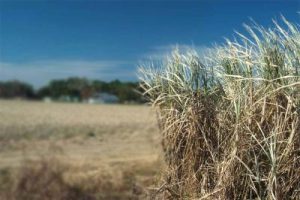
Trinidad and Tobago’s Dry Season usually occurs between January and May with temperatures reaching and sometimes exceeding 34 degrees Celsius during the day and 24 degrees Celsius during the night. With such high temperatures, a number of implications tend to follow:
- Heat Stress and Stroke
- Agricultural and Livestock Loss
- Water Scarcity
- Increases in Mosquito and Mosquito-borne diseases
One common and expected occurrence during the dry season are wildfires; uncontrolled fires that often occur in wild and unpopulated areas. These are often caused by human activity or when accumulated dead matter spontaneously combusts and ignites the surrounding area. According to the National Weather Service, Arkansas however, approximately 90% of wildfires are caused by people. As such, it is possible to manage outbreaks during the dry season through changed human behaviour.
Here’s how to manage wildfire outbreaks during the dry season:
1. REMOVE PLANT MATERIAL FROM FENCE LINES
When plant material get out of control along fence lines, the risk of wildfires increases. Removing hostile vegetation from fence lines and perimeters means removing a source fuel for wildfires and makes it harder for flames to spread across to oil well locations and other buildings.
2. KEEP FIRE TRAILS CLEAR
Fire trails are rural roads built specifically for access by fire management services. These trails also create control lines or gaps that serve as barriers to slow or stop the spread of wildfires. Many oil and gas properties border natural areas, and are at risk to advancing wildfires. It is thus important to ensure that fire trails are constructed for ease of access to these at-risk sites.
3. PREVENT THE ACCUMULATION OF DEAD MATTER
As previously stated, wildfires can start when accumulated dead matter combusts and spontaneously ignites the surrounding area. The impact of these fires can be limited by establishing and maintaining a defensible space of 100 feet or more between oil wells, storage tanks, compressors, trees and brush, and clearing space between buildings and neighbouring structures. Other measures include cleaning rooves and gutterings of dead leaves, bush and weeds, and ensuring that lawn and grass is maintained at a height go 4 inches.
TIPS TO MANAGE GENERAL FIRE OUTBREAKS
- Repair, maintain and inspect fire hydrants (twice per year)
- Inspect sprinkler systems and fire water pumps.
- Clearly indicate water tanks, hydrants, ponds and other water supplies that may be used for firefighting.
- Conduct simulated fire drills.
- Locate and review evacuation plans and emergency procedures.
- Have a water backup plan that includes storing water to last up to 3 to 7 days.
- Store water safely to avoid the spread of diseases transmitted by mosquitoes.
PHONE CONTACTS FOR EMERGENCY SERVICES IN TRINIDAD AND TOBAGO
- FIRE – 990
- POLICE – 999
- AMBULANCE SERVICE – 811
- ODPM OFFICE – 640-1285
